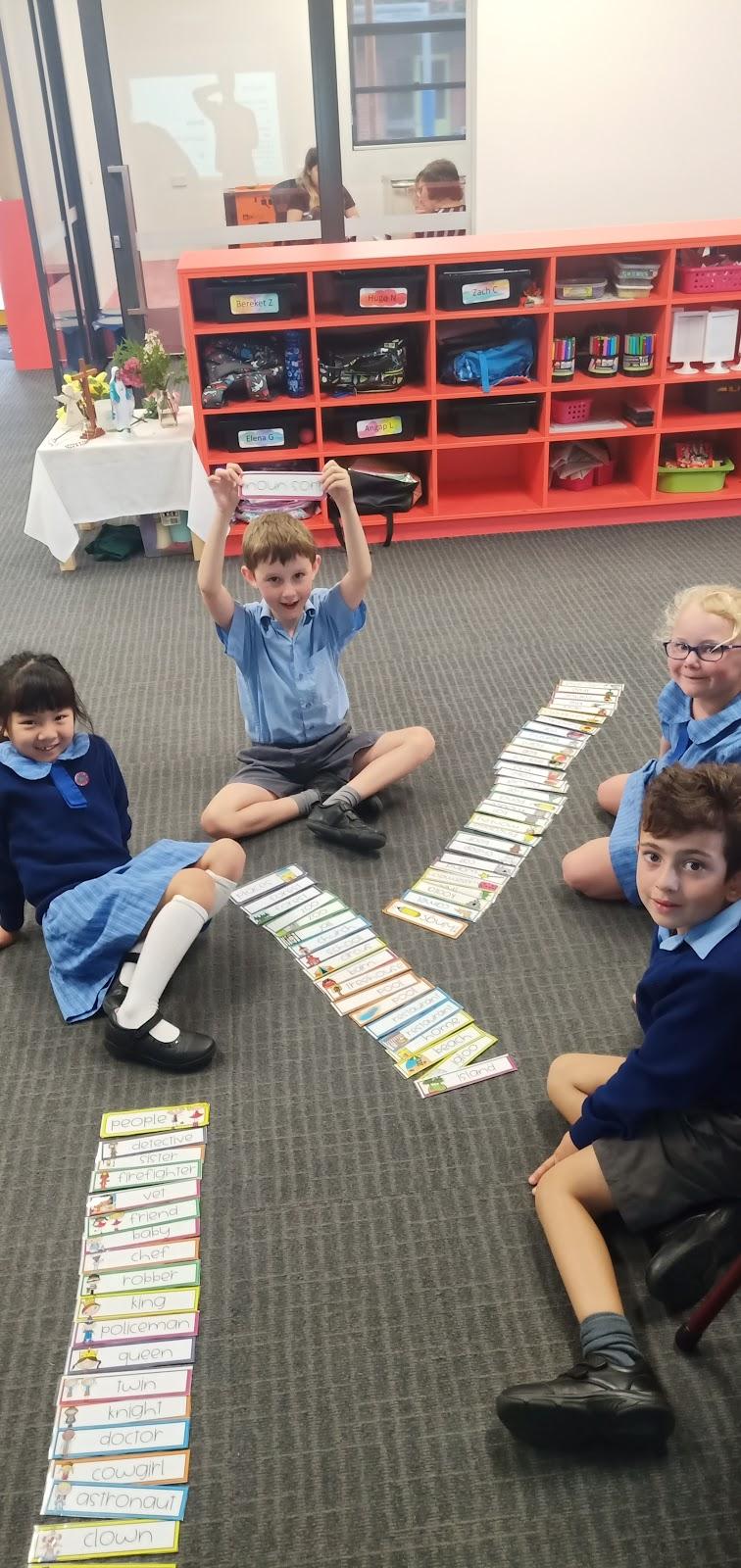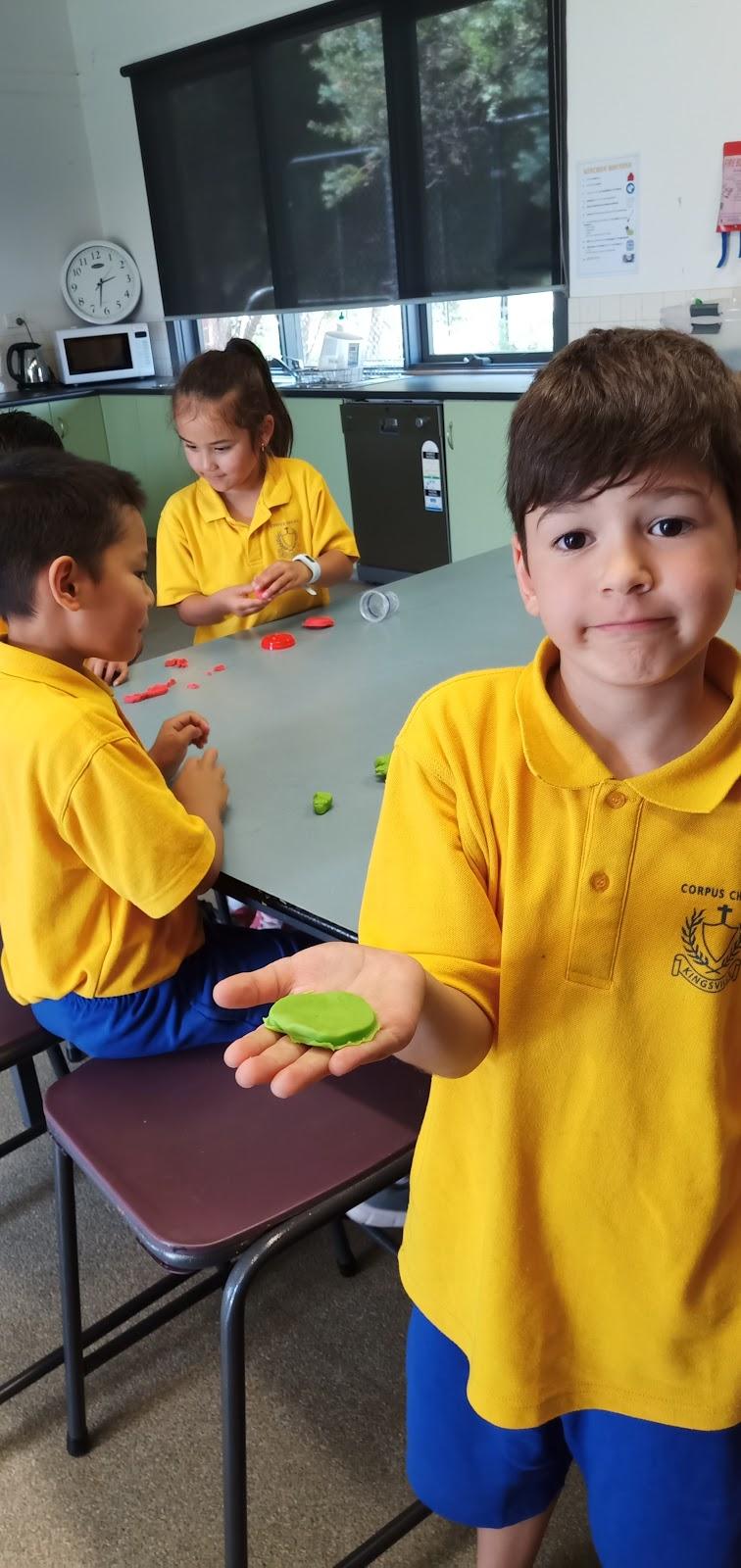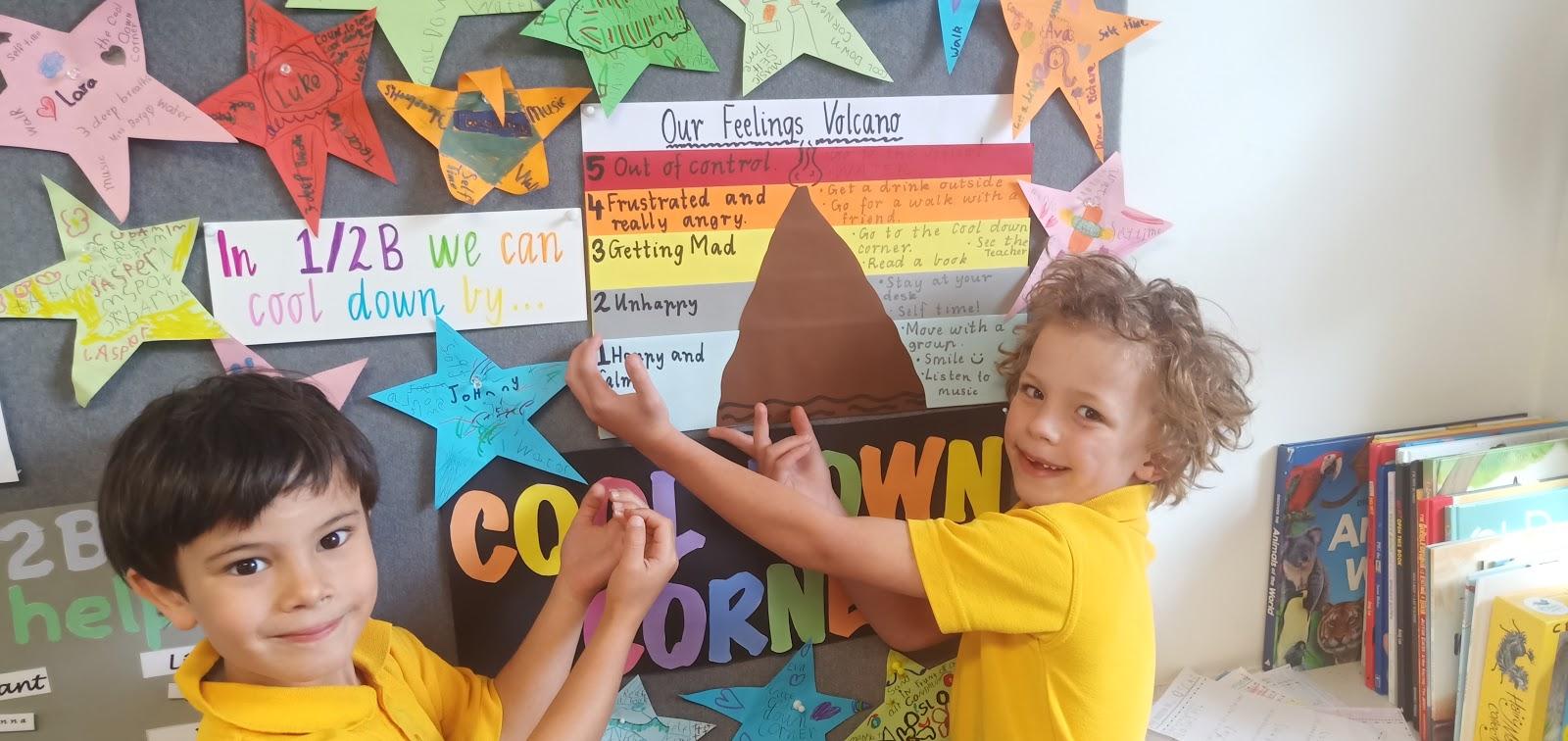Learning and Teaching

Homework
Over the past few weeks, your child will have started to bring homework home.
At Corpus Christi School, there will be no formal homework set for students in Years Prep-2. However, it is expected that families engage in daily reading:
Read by the child
Read with the child
Read to the child
Suggested time: Average 10-15 minutes reading time per night.
Formal homework will be assigned to all children in Years 3-6.
Homework will be assigned at the beginning of a week with the due date and the required completion format clearly communicated to children and parents.
Homework will be time based, not task based. Children will be required to complete what they can in a specified amount of time for each task, which will be made clear on the assigned homework.
The duration for homework activities at Corpus Christi is:
Years 3/4
Homework Assignments: Approximately 60-80 minutes per week
Reading: Average 15 minutes of reading per day
Years 5/6
Homework Assignments: Approximately 100-120 minutes per week
Reading: Average 20 minutes of reading per day
Tips for Making Homework Work
Find the right time
For some children, the best time to get homework done will be soon after they get home from school. Others might like a break to play and unwind before starting on homework.
No matter when your child does homework, it’s useful to have a regular time for homework each week. And it’s great if your child can do homework when you’re around to support and encourage him.
Create the right environment
It’s a good idea to set up your child somewhere that has good light, air and enough space to spread out with books, pens and other resources. Younger children are more likely to work better in a family area like the kitchen table, whereas older children will most likely need their own quiet space.
Wherever your child does homework, try to minimise distractions by turning off the TV and asking younger siblings to play somewhere else. One idea is to make homework time a quiet time for your whole family to read or do other quiet activities.
Help your child get organised
You can show your child how to break down big assignments or projects into smaller, more manageable tasks. He might then plan to do one task each night. If he has several different assignments in one week, help him plan what to do each night.
Help your child develop a positive approach
Schoolwork isn’t always easy. Your job is to help your child develop a positive approach to academic and organisational challenges.
If your child avoids challenges, encourage her to sort the tasks into those she finds easy and those she finds difficult. Your child might prefer to do ‘easier’ tasks first to build her confidence before tackling the more difficult tasks. Or she might want to do the most challenging tasks first, before she’s too tired.
If your child is struggling with a particular assignment, you could help him approach the problem positively by getting him to pinpoint what he’s finding difficult. From there, you can brainstorm some solutions together, weighing up the pros and cons of the different options to find the best one. You can also help your child identify people or resources that could help him further.
Be a coach
When it comes to homework, it can help to think of yourself as your child’s coach. You can support your child by creating the right time, environment and approach for homework, but doing the work is ultimately your child’s responsibility.
If you do the homework for your child, your child won’t develop important academic skills. She also won’t learn what to do when she’s faced with a problem like lack of time, conflicting priorities or a task she doesn’t understand.
Being the coach might mean you have to let your child ‘fail’ sometimes – but remember that children learn from failure as well as success. What really counts is the attitude you both have to these failures.
For more information see: Homework: children and teenagers
Year 1/2 Learning Community Snapshot
The Year 1/2s are hard at work!
Although we are still only in February, the Year 1/2 community have achieved so much already! We have had our Year 1s entering into a new learning space, our Year 2s have become the leaders and are doing a sensational job of guiding the community through the routines and activities of our learning area. With so much change, they have done an amazing job of settling into a good groove.
We have begun learning about narratives and creative writing. Students have been putting in a lot of time and effort to create interesting descriptions of characters and settings. They have described monsters and aliens, beaches and tree houses. We are all very excited to see if these fantastic characters and settings will make their way into a story or two!
We have started our Inquiry topic by learning about ourselves as learners. Students have been able to participate in a range of activities that let them see what kind of learner they are. We were wondering, are you more of a hands on learner, or do you enjoy working with a group. Maybe you prefer a calm quiet place or use a little bit of music! As the term continues, we look forward to using this information to become the best learners we can be!
And finally, in our Wellbeing topic we have been developing our skills of recognising the emotions of others as well as the emotions within ourselves. With this we can use a range of strategies to stay calm and relaxed and at the bottom of our volcano!
We definitely have an exciting term ahead of us.
(The Year 1/2 Community)
Deborah Courtney
Director of Learning and Teaching




